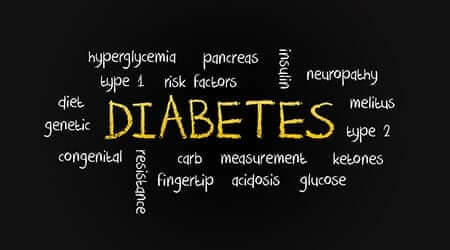As a C.D.E. and R.N., I have been teaching people to care for themselves when they have diabetes for over 20 years. Many times during our education sessions, I will discuss a term or phrase that seems common to me, but my patient usually gives me a curious look and are unfamiliar with the term. I would like to list some explanations of common terms often covered in my diabetes education sessions:
- Dawn Phenomenon / Effect – An increase in blood sugar during the hours of 2 – 8am regardless of what was eaten prior to bedtime. This is due to a release of counterregulatory hormones such as growth hormone, epinephrine, glucagon, and cortisol. These hormones are supposed to be secreted during the early morning hours to help us wake up, but they can raise our blood sugar if we do not have a proper insulin response. Check with your physician to see if this effects you (check your blood sugar at 2 – 3am) and remember eating breakfast will help turn off these hormones to eventually lower your blood sugar.
- Somogyi Effect – This is considered ‘rebound hyperglycemia’, or elevated blood sugar over 200 mg/dl following a low blood sugar under 70 mg/dl. It mostly happens in the middle of the night, but could happen anytime of the day. It is usually related to too much medication – either insulin or diabetes pills. Monitoring your blood sugar between 2 – 3am could give you and your physician much needed information.
- Hyperinsulinemia – An increase of insulin pouring out of the beta cells of the pancreas to maintain normal blood sugars. It can be associated with pre-diabetes or type 2 diabetes; it can be caused by insulin resistance.
- Insulin Resistance – There is insulin coming from the pancreas but it is not getting into the cells because of a defect at the receptor sites. It is usually present in people who have abdominal or visceral fat – central obesity, elevated triglycerides, a low HDL, increased blood pressure, pre-diabetes – as well as those with type 2 diabetes.
- A1C Test (glycated hemoglobin) – It measures the preceding 3 month average glucose with a simple blood test. There is no need to fast and you cannot cheat prior to the test. It can be influenced by anemia or blood loss since it shows the amount of sugar attached to red blood cells. For good control, it should be maintained at 6.5-7.0% by using a food plan, exercise, weight control and diabetes medication.
These are a few of the diabetes terms that may be unfamiliar to you. I hope to keep you informed with more terms in another newsletter in the near future. Until then, maintain and enjoy your health!
NOTE: Consult your doctor first to make sure my recommendations fit your special health needs.













Leave A Comment